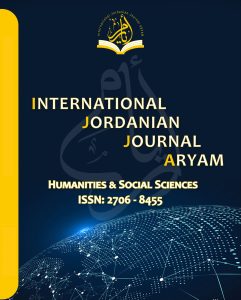Year: 2025 Volume: 7 Issue: 4
SPECIAL ISSUE– THE 4TH INTERNATIONAL CONFERENCE ON THE EXPERIMENTAL SCIENCES MULTIDISCIPLINARY
The Role of Drought in Economic and Spatial Transformations in the Countryside of the Senegalese River, Mauritania - Analytical Study in Rural Geography- Dr. Abdullah Sidi Mohamed Abnu | Pages: 94-109 |
DOI: https://zenodo.org/records/10496090
Keywords: Desertification and Drought, Economic Transformations, Social Transformations, Spatial Transformations, Sustainable Development, Rural Development.
Issn Online
3006-7286
Impact Factor: (1.705)
International Jordanian journal Aryam for humanities and social sciences; IJJA publishing journal committed towards providing a platform to outstanding scientists and researchers to exhibit their findings for the furtherance of Humanities and Social Sciences. Issued by the Jordanian Center for Research and Studies.
Issn Online (3006-7286) sequential with Issn Online (2706-8455).
The Journal’s website supported the Arabic language with the ISSN number (2706-8455) in the period 2019-2023. The Journal began supporting the English language since the beginning of 2024 and with the ISSN number (3006-7286).



